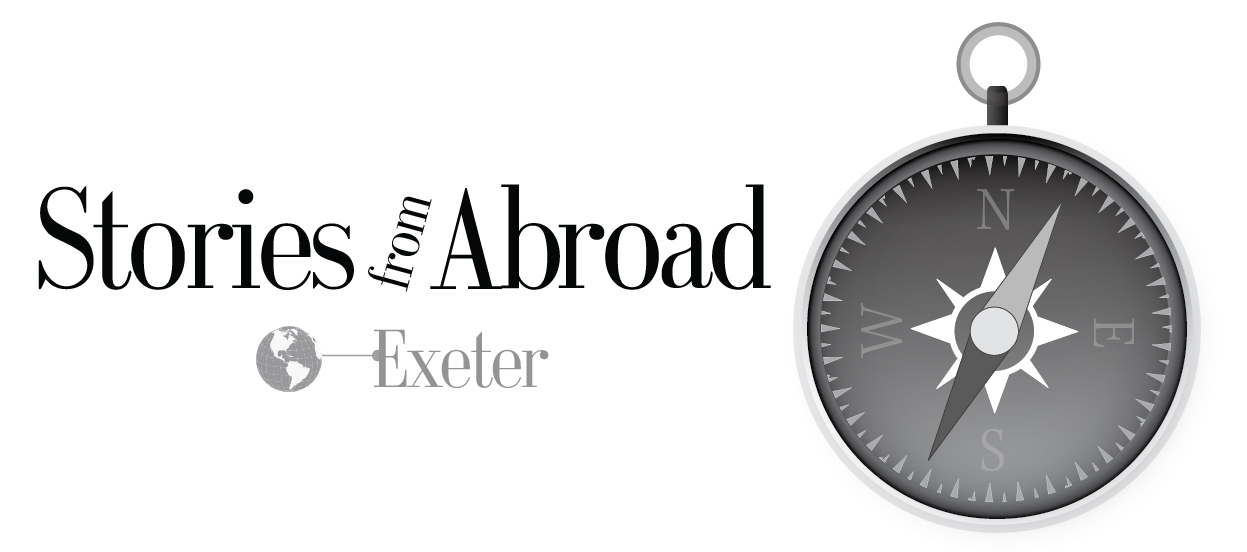My first week has come and gone at the University of Exeter, and it has been a whirlwind of new people, places and accents. Exeter is home to roughly 18,000 students and is located in the southwest of England. I’m taking two classes and getting 16 College of William and Mary credits (I laughed for a solid five minutes out of disbelief and pure joy when I learned that little fact). I live in a lovely flat in the quaint city center with students from Turkey, Australia, Hong Kong, the Netherlands and the United States. In short, life is great, but not without culture shock. So much has happened that it is difficult to condense it into one blog post. Therefore, I will stick to three topics that my orientation director, Sue O’Hara, believes are key to understanding British culture: weather, queues and punctuality.
“The Brits love talking about the weather — because we have a lot of it,” O’Hara said during our first orientation session. And boy, she was not kidding. O’Hara told us that the weather forecast for essentially all of England is calling for rain for approximately the next … 50 years. Don’t let the brief rays of beautiful sun trick you, because rain will move in faster than a streaker on Blowout. My umbrella is my new best friend, although more often than not the wind blows it inside out. But the mere security of knowing that I could be partially protected from some rain makes my umbrella a valuable mental asset. I’ve accepted that I will be a little damp most of the time.
Despite the fact that it rains basically every single day, the Brits never tire of talking about it. With the same daily forecast, you think they would grow weary of conversations like, “The weather today, am I right?” but they never do. It’s a wonderful icebreaker and bonding technique since, culturally, the British are not the first to initiate a conversation. However, the rain does not bother me too much. It just makes me appreciate the beauty of Devonshire all the more when it’s sunny.
In a culture concerned with order and conformity, queues fit right in. For those who don’t know, queues are lines. However, in England, they queue for everything — the store, public transit and clubs, to name a few. Good luck if you try to cut the queue. Some brave, intoxicated soul always tries to cut the queue for the club, claiming through their slurring that some distant friend is waiting for them in the front of the line and it also just so happens to be their birthday. I let him or her pass because I know the person in front of me will send them to the back. You simply do not cut the queue.
Speaking of clubs, this is one of the things that differentiates Exeter from Williamsburg. The clubs and pubs are popular every single night of the week. Gone are the days of the simple Thursday through Saturday culture. While I can’t keep up with the fresh-faced first years and go out every night, when I do go out, it is a lot of fun. My personal favorite night is Cheesy Tuesday, where the DJ plays a fun selection of current hits and throwback tracks from the aughts, ‘90s and ‘80s. When it’s good, you’re belting out Mr. Brightside like it’s 2003. When it’s bad, I have to wonder how the DJ got the playlist from my best friend’s bat mitzvah. Although, you haven’t lived until you’ve witnessed Cotton Eye Joe performed in a club.
Finally, punctuality is quite important. This topic is pretty self-explanatory. You do not come late to class or you will receive an impressive eye-roll or worse, a verbal “tut” of disapproval from the professor. I’ve heard tell of the infamous and terrifying triple “tut-tut-tut,” but I’ve yet to see it.
With O’Hara’s three tips on navigating British culture, I’ve had no problem adjusting. I simply arrive to the queue on time and discuss the weather while patiently waiting in line. These three traits are just the tip of the iceberg and are not meant to over-simplify Britain’s rich culture. I’m looking forward to getting to know my home even better.

